'Your Biggest Competitor in Life Will Always Be Yourself'
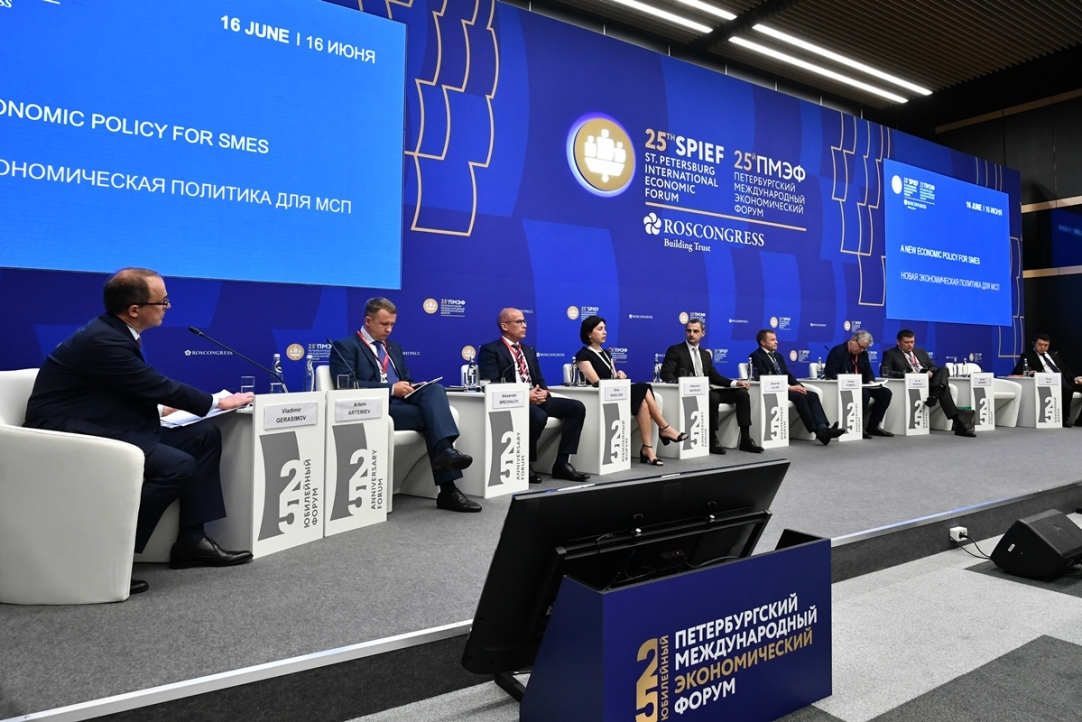
HSE representatives attended the St. Petersburg International Economic Forum and contributed to many of its sessions. What technologies, approaches and strategies are relevant in this new reality we find ourselves in? HSE Rector Nikita Anisimov, HSE Academic Supervisor Yaroslav Kuzminov and other experts offered their perspectives on these issues during panel discussions.
Spaces and technology
The Forum session 'Where spaces meet technology: New solutions for territorial development' discussed how spatial data digitalisation can facilitate the development of regions and economic sectors and improve public authorities' interaction with businesses and citizens.
The session moderator, HSE Rector Nikita Anisimov, invited the audience to discuss integrated territorial development in the context of potential anti-crisis effects of spatial data digitalisation. 'I welcome everyone to this warm professional conversation', he said.
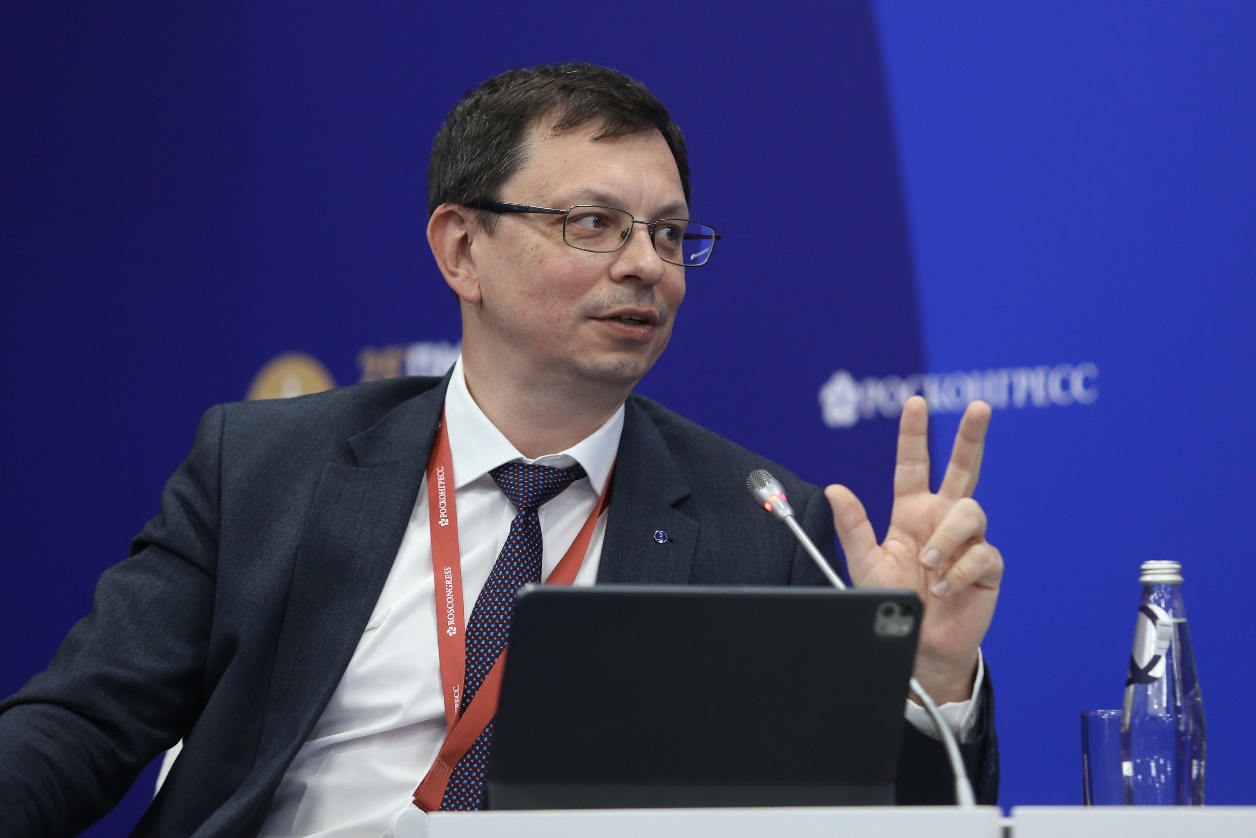
According to Oleg Skufinsky, Head of Rosreestr, the state programme to create a National System of Spatial Data by 2030 involves domestic development and implementation of the necessary software. Setting up a network of geodetic stations will help avoid errors, while covering the entire country with a national geodetic grid could reduce paperwork processing time five-fold. 'Comprehensive and accurate geodata will inform administrative decision-making and support user-friendly services for entrepreneurs and citizens', Skufinsky said.
'Serbia operates a geodetic portal that meets UN and World Bank standards. How does this system work?' Anisimov addressed this question to Borko Drašković, Director of Geodetic Authority, Republic of Serbia.
Drašković expressed confidence that the new geodata system could change the current perception of the industry's capabilities; he also offered to share his agency's experience, which both the EU and the UN found extremely valuable, with Rosreestr. 'Geodata is not a challenge for just one day but a game that never ends', said Drašković.
Small business will help the country
Yaroslav Kuzminov, HSE Academic Supervisor and Coordinator of the Expert Council of the Government of the Russian Federation, addressed the session 'A New Economic Policy for SMEs'.
Kuzminov believes that today is not the time to discuss how the state can help small businesses, but rather how small businesses can help the state in this challenging situation.
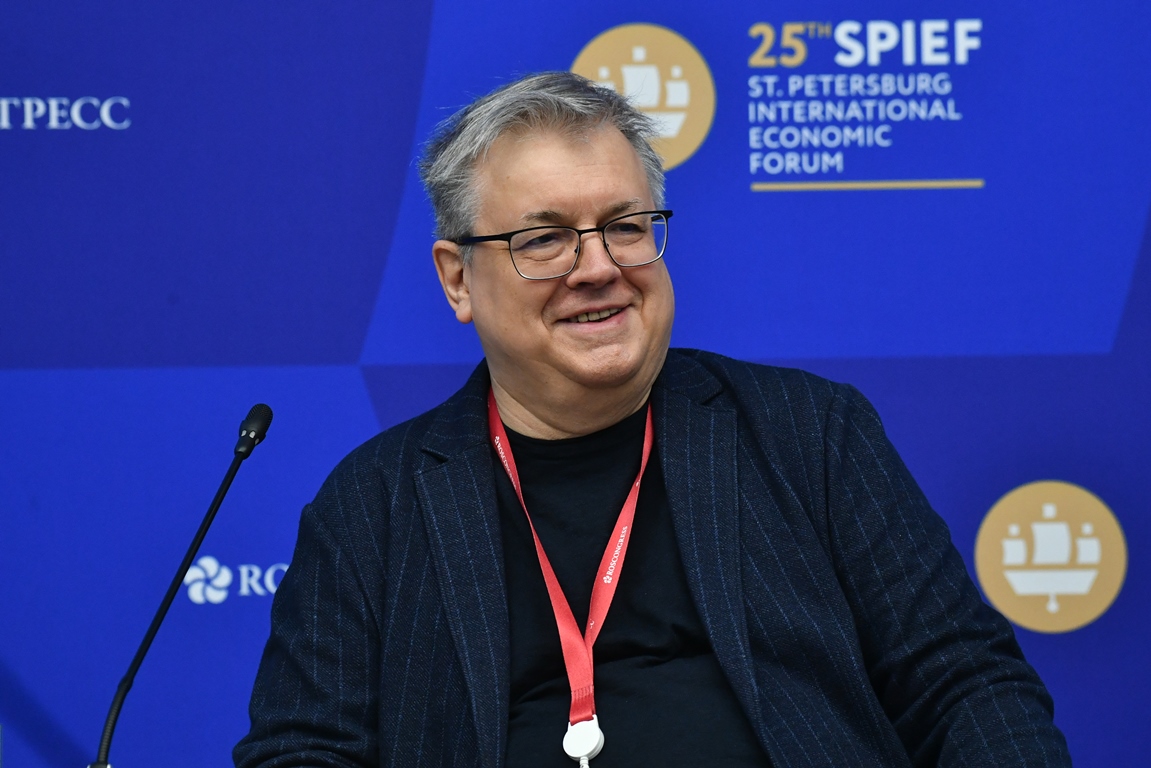
According to Kuzminov, all targets for SME development that were set a few years ago have already been met, and today, the share of SMEs in the market and total employment in Russia are 20% and 27%, respectively. For comparison, these figures are 57% and 52% in the US, and 60% and 83% in China. ‘There is room for us to grow. I believe that three years from now, the share of SMEs in Russia’s economy will reach 30%-40% without any effort from the government’, Kuzminov noted. ‘It depends only on how much the Russian export sector will shrink by’.
Kuzminov also believes that SMEs could offset potential problems with employment that may eventually arise.
In his opinion, SMEs can fill certain market niches such as small-scale production of parts and materials for industries, as well as repairs and maintenance. ‘All these sectors undoubtedly require not only serious technological innovation but also a highly qualified workforce. We should consider providing online training courses in technology and economics for small businesses’, Kuzminov concluded.
Social policy reset
Irina Arkhipova, Deputy Dean of the HSE Graduate School of Business, spoke at the ‘Reset “S”: how will social programmes change in the new reality?’ session. She noted that as more people are in need of assistance, and since both public and corporate resources are limited due to the crisis, new and more efficient approaches to addressing social need in this context must be developed.
In particular, this means moving from one-off social assistance projects to more systemic efforts. Arkhipova cited data from VCIOM's public opinion polls to show that while more than 70% of Russians participated in some way or another in social and volunteer actions over the last five years, only one in five respondents engaged in such work systematically. This pattern has not changed over the last 10 years.
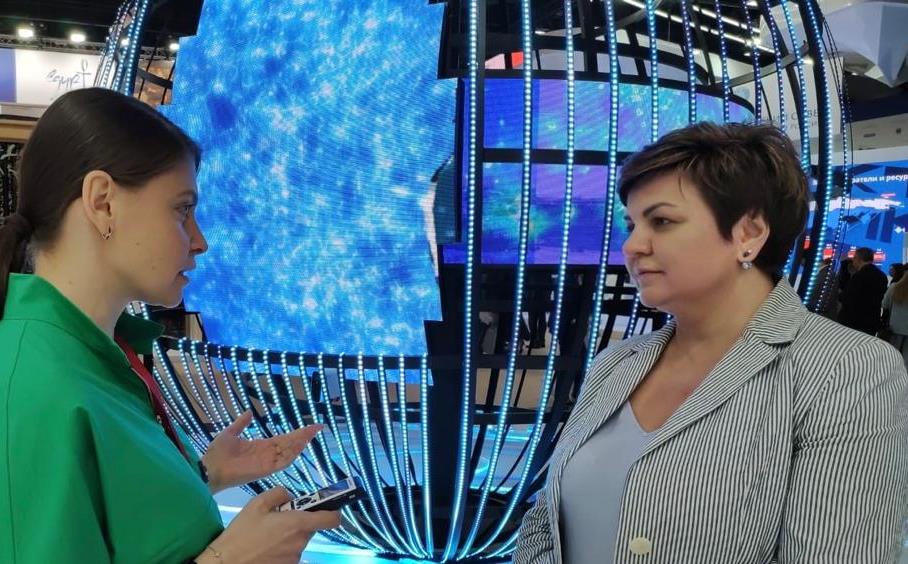
According to Arkhipova, it is essential to learn to treat NGOs as experts in their field rather than as subcontractors implementing someone else's projects. At the same time, NGO employees need to become better at business planning, negotiation and marketing.
She emphasised the vital role of education in this sphere.
New career trajectories
On June 15, before the official opening of SPIEF 2022, Professor Valery Katkalo, HSE First Vice-Rector and GSB Dean, addressed the session 'The Latest Career Trajectories' held as part of the SPIEF.Junior Forum. Along with other experts on the panel, he advised the audience of school students on what kind of knowledge and skills they need to build a successful career and how to choose the right university for their education.
'Think first about your own development. Be aware that neural networks, artificial intelligence and people around you are not what you will compete against. Your biggest and only competitor in life will always be yourself. The main recipe for career growth is developing the ability for continuous self-improvement, a continuous drive to outperform yourself', Katkalo emphasised.
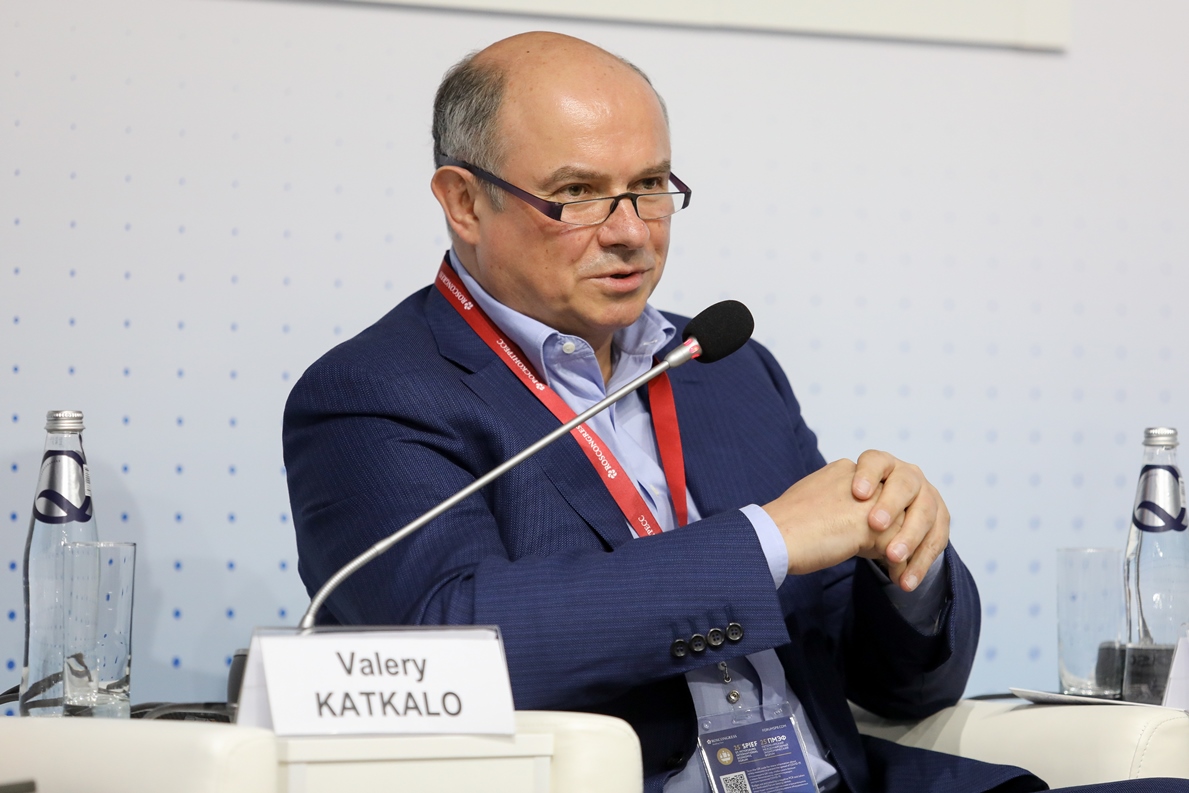
According to Katkalo, a good university prepares students for a broadly defined professional field. HSE University has recently adopted its Development Program for the Period until 2030, introducing three types of prospective teachers to be recruited by the University: a traditional academic lecturer; an educational methodologist who does not necessarily write academic papers but rather creates quality online courses, business games and case studies; and a practice-oriented trainer with a strong business background. Along the same lines, all training programmes are supervised by expert councils which are led exclusively by business practitioners.
Katkalo also mentioned the quality of university degrees sending a signal to potential employers about the job applicant's actual level of training. While the grades in university degrees earned from different schools may look the same on the surface, the quality of education makes a difference: top grades earned from one school may in reality indicate a lower level of training than poor grades earned from another.
See also:
HSE University at SPIEF: Innovations, BRICS, and Healthcare
The St Petersburg International Economic Forum took place on June 18-21, 2025. HSE experts have discussed cooperation between universities, investors, and technology companies in the development of innovations, sharing the best practices in healthcare and drug safety, as well as charity and humanitarian collaboration in the BRICS countries. As a result, several cooperation agreements have been signed during the forum.
‘HSE University Considers Training in AI Technologies to Be a Basic Requirement’
‘Technologies of the Future: A Common Global Space or Every Nation for Itself?’ was the title of a session held on June 19, 2025, with the support of Alfa-Bank at this year’s St Petersburg International Economic Forum (SPIEF-2025). The discussion featured HSE University Rector Nikita Anisimov and was moderated by journalist, TV presenter, and public figure Ksenia Sobchak.
'We Are Open to Cooperation on an Equal Basis and Will Find a Path to a Better Future'
How are digital platforms contributing to sustainable development? How is international cooperation progressing in Eurasia? How should the Russia-India business dialogue proceed? HSE University's scientists presented their answers during expert discussions at the St Petersburg International Economic Forum.
HSE Distinguished Professor Sergey Karaganov Moderates Plenary Session at SPIEF
At the plenary session of the St Petersburg International Economic Forum (SPIEF), Russian President Vladimir Putin participated alongside the Presidents of Bolivia and Zimbabwe, Luis Alberto Arce Catacora and Emmerson Dambudzo Mnangagwa. For the first time, a representative from HSE University—Sergey Karaganov, Academic Supervisor of the Faculty of World Economy and International Affairs and HSE’s distinguished professor—served as the moderator of the plenary session.
HSE University Experts Take Part in Preparing Report ‘Russia—Oman—Partnership Prospects’ at SPIEF 2024
The report, prepared by the Roscongress Foundation and experts of the HSE Institute for Public Administration and Governance, covers the current situation in the economy of the Sultanate of Oman and the prospects for Russian-Omani partnership. Prior to SPIEF 2024, HSE was the first Russian university to sign a cooperation agreement with the University of Nizwa (Oman).
HSE University at SPIEF: From Cyber Gaming to Arctic Development
The timeliness of Russia’s first cyber gaming platform, the importance of closing the gender gap in the IT industry, and the future of international cooperation in the Arctic were just some of the issues discussed at the St Petersburg International Economic Forum (SPIEF). The HSE News Service reports on some of the topics of discussion at the forum.
Qatari Ambassador Ahmed Al Thani Visits HSE University
During the St Petersburg International Economic Forum, HSE University-St Petersburg hosted Sheikh Ahmed bin Nasser bin Jasim Al Thani, Ambassador of Qatar to the Russian Federation.
HSE University at SPIEF: Smart Migration and the Future of the Global Economy
Sessions attended by HSE University experts at the recent St. Petersburg International Economic Forum focused on the digitalisation of migration management, regionalisation of the world economy, participation of companies in global value chains, and many other topics. Below, HSE News Services covers some of the main sessions of the event.
HSE University and Rossotrudnichestvo Agree to Train Specialists in Teaching Russian as a Foreign Language
HSE University and Rossotrudnichestvo have signed an agreement to establish a Russian Language Centre at HSE University in St Petersburg. It will train teachers of Russian studies and future leaders of educational programmes and courses of Russian as a foreign language. The document was signed by HSE University Rector Nikita Anisimov and Head of Rossotrudnichestvo Yevgeny Primakov at the St Petersburg International Economic Forum.
HSE University and Agency for Strategic Initiatives Sign Cooperation Agreement
HSE University and the Agency for Strategic Initiatives (ASI) have agreed to cooperate in the development of new technologies, the digital transformation of the economy, and the social development of the country. The agreement was signed by HSE University Rector Nikita Anisimov and ASI Director General Svetlana Chupsheva at the St Petersburg International Economic Forum.


